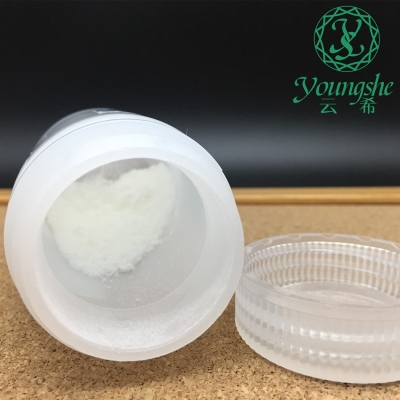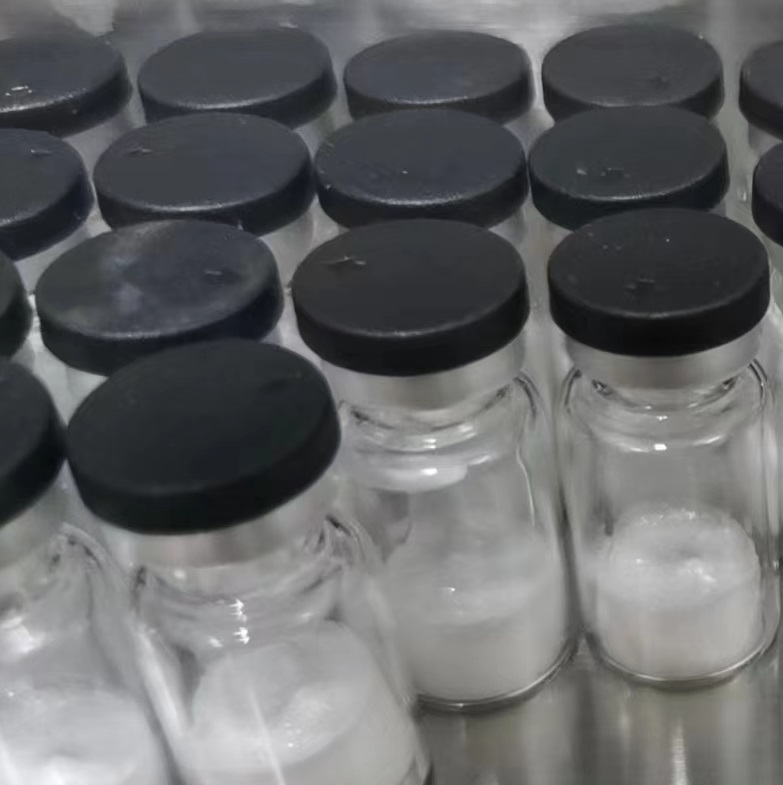-
Categories
-
Pharmaceutical Intermediates
-
Active Pharmaceutical Ingredients
-
Food Additives
- Industrial Coatings
- Agrochemicals
- Dyes and Pigments
- Surfactant
- Flavors and Fragrances
- Chemical Reagents
- Catalyst and Auxiliary
- Natural Products
- Inorganic Chemistry
-
Organic Chemistry
-
Biochemical Engineering
- Analytical Chemistry
- Cosmetic Ingredient
-
Pharmaceutical Intermediates
Promotion
ECHEMI Mall
Wholesale
Weekly Price
Exhibition
News
-
Trade Service
Bardet-Biedl syndrome (BBS) is an autosomal recessive genetic disease characterized by severe early-onset obesity and a series of other diagnostic features typical of ciliary diseases, including polydactyly/toe, retinitis pigmentosa, kidney Cysts and intellectual disability, etc.
At present, there are more than 20 pathogenic genes of BBS that have been found in clinical practice, among which mutations of BBS1 and BBS10 genes account for more than 50%.
BBS family proteins are the key components for the construction of cell primordial hairs.
The primary cilia are the antennae and antennas of the cell, which are used to collect peripheral signals and environmental changes.
It is enriched with many signal transduction receptors, including important signal pathways for development-Wnt, SHH, PDGFRA and so on.
This sensory mechanism plays a vital role in the function of cells in vertebrate tissues.
At present, research on BBS is basically carried out with animal models.
There is a lack of model studies directly related to BBS patients, and there has been controversy over whether BBS directly causes leptin and insulin resistance in obesity.
On April 15, 2021, the Rudolph Leibel Laboratory of Columbia University (with Dr.
Liheng Wang as the first author) published a report entitled "Bardet-Biedl syndrome proteins regulate intracellular signaling and neuronal function in patient-specific iPSC-" in the Journal of Clinical Investigation.
Derived neurons" cover article about BBS hereditary obesity.The study uses human stem cells to study the pathogenesis of the genetic obesity disease-Bardet-Biedl Syndrome (BBS) [1].
The Leibel laboratory has been committed to the study of human obesity since the 1980s.
The main scientific research results include the discovery of leptin and the pathogenic mechanism of childhood genetic obesity.
In this article, the first author and co-corresponding author Dr.
Liheng Wang established a model of hypothalamic arcuate nucleus neurons differentiated from BBS induced pluripotent stem cells (iPSCs) [2], and further explored BBS gene mutations on this basis Influence on hypothalamic nerve development, nerve function and signal pathways.
They found that the most common mutations in BBS, BBS1M390R and BBS10C91fsX95, did not affect the efficiency of neuronal differentiation, but could cause morphological defects, including damage to nerve synapses and abnormalities of primary cilia.
Through single-cell RNA sequencing of hypothalamic neurons differentiated from BBS1M390R and its isogenic stem cells, they identified several down-regulated signaling pathways, including insulin and cAMP signaling and axon guidance.
Further studies have shown that BBS1M390R and BBS10C91fsX95 mutations can disrupt insulin signaling in human fibroblasts and iPSC-differentiated neurons.
In addition, by sampling skin slices from patients with BBS1 and BBS10, the researchers found that these mutations impaired leptin-mediated p-STAT3 activation in iPSC-derived hypothalamic neurons.
Correction of BBS mutations at the level of stem cells through gene editing can repair leptin signaling in hypothalamic nerve cells.
Finally, they found that in BBS1M390R and BBS10C91fsX95 iPSC-derived hypothalamic neurons, the production of POMC, a key neuropeptide that regulates energy balance, was impaired, further explaining the obesity mechanism of these patients.
In general, the study clarified the mechanism of BBS protein involved in regulating energy balance in the central nervous system from the structure and function.
It also proved that BBS mutations can directly affect key metabolic pathways, leading to obesity.
This study proved the prospect of using human stem cell technology to study the pathogenesis of other genetic obesity, and opened the way for the next step in drug screening and individualized treatment of such rare genetic obesity diseases.
Original link: Platemaker: 11 References 1.
Wang L, Liu Y, Stratigopoulos G, Panigrahi SK, Sui L, Zhang Y, LeDuc CA, Glover HJ , De Rosa MC, Burnett LC, Williams DJ, Shang L, Goland R, Tsang SH, Wardlaw SL, Egli D, Zheng D, Doege CA, Leibel RL.
J Clin Invest.
2021.
2.
Wang L, Meece K, Williams DJ, Lo KA, Zimmer M, Heinrich G, Martin Carli J, Leduc CA, Sun L, Zeltser LM, Freeby M, Goland R, Tsang SH, Wardlaw SL, Egli D, Leibel RL.
Differentiation of hypothalamic-like neurons from human pluripotent stem Cells.
J Clin Invest.
2015 Feb;125(2):796-808.
Reprinting instructions [Non-original articles] The copyright of this article belongs to the author of the article.
Personal forwarding and sharing are welcome.
Reprinting is prohibited without permission.
The author owns all legal rights.
Must investigate.
At present, there are more than 20 pathogenic genes of BBS that have been found in clinical practice, among which mutations of BBS1 and BBS10 genes account for more than 50%.
BBS family proteins are the key components for the construction of cell primordial hairs.
The primary cilia are the antennae and antennas of the cell, which are used to collect peripheral signals and environmental changes.
It is enriched with many signal transduction receptors, including important signal pathways for development-Wnt, SHH, PDGFRA and so on.
This sensory mechanism plays a vital role in the function of cells in vertebrate tissues.
At present, research on BBS is basically carried out with animal models.
There is a lack of model studies directly related to BBS patients, and there has been controversy over whether BBS directly causes leptin and insulin resistance in obesity.
On April 15, 2021, the Rudolph Leibel Laboratory of Columbia University (with Dr.
Liheng Wang as the first author) published a report entitled "Bardet-Biedl syndrome proteins regulate intracellular signaling and neuronal function in patient-specific iPSC-" in the Journal of Clinical Investigation.
Derived neurons" cover article about BBS hereditary obesity.The study uses human stem cells to study the pathogenesis of the genetic obesity disease-Bardet-Biedl Syndrome (BBS) [1].
The Leibel laboratory has been committed to the study of human obesity since the 1980s.
The main scientific research results include the discovery of leptin and the pathogenic mechanism of childhood genetic obesity.
In this article, the first author and co-corresponding author Dr.
Liheng Wang established a model of hypothalamic arcuate nucleus neurons differentiated from BBS induced pluripotent stem cells (iPSCs) [2], and further explored BBS gene mutations on this basis Influence on hypothalamic nerve development, nerve function and signal pathways.
They found that the most common mutations in BBS, BBS1M390R and BBS10C91fsX95, did not affect the efficiency of neuronal differentiation, but could cause morphological defects, including damage to nerve synapses and abnormalities of primary cilia.
Through single-cell RNA sequencing of hypothalamic neurons differentiated from BBS1M390R and its isogenic stem cells, they identified several down-regulated signaling pathways, including insulin and cAMP signaling and axon guidance.
Further studies have shown that BBS1M390R and BBS10C91fsX95 mutations can disrupt insulin signaling in human fibroblasts and iPSC-differentiated neurons.
In addition, by sampling skin slices from patients with BBS1 and BBS10, the researchers found that these mutations impaired leptin-mediated p-STAT3 activation in iPSC-derived hypothalamic neurons.
Correction of BBS mutations at the level of stem cells through gene editing can repair leptin signaling in hypothalamic nerve cells.
Finally, they found that in BBS1M390R and BBS10C91fsX95 iPSC-derived hypothalamic neurons, the production of POMC, a key neuropeptide that regulates energy balance, was impaired, further explaining the obesity mechanism of these patients.
In general, the study clarified the mechanism of BBS protein involved in regulating energy balance in the central nervous system from the structure and function.
It also proved that BBS mutations can directly affect key metabolic pathways, leading to obesity.
This study proved the prospect of using human stem cell technology to study the pathogenesis of other genetic obesity, and opened the way for the next step in drug screening and individualized treatment of such rare genetic obesity diseases.
Original link: Platemaker: 11 References 1.
Wang L, Liu Y, Stratigopoulos G, Panigrahi SK, Sui L, Zhang Y, LeDuc CA, Glover HJ , De Rosa MC, Burnett LC, Williams DJ, Shang L, Goland R, Tsang SH, Wardlaw SL, Egli D, Zheng D, Doege CA, Leibel RL.
J Clin Invest.
2021.
2.
Wang L, Meece K, Williams DJ, Lo KA, Zimmer M, Heinrich G, Martin Carli J, Leduc CA, Sun L, Zeltser LM, Freeby M, Goland R, Tsang SH, Wardlaw SL, Egli D, Leibel RL.
Differentiation of hypothalamic-like neurons from human pluripotent stem Cells.
J Clin Invest.
2015 Feb;125(2):796-808.
Reprinting instructions [Non-original articles] The copyright of this article belongs to the author of the article.
Personal forwarding and sharing are welcome.
Reprinting is prohibited without permission.
The author owns all legal rights.
Must investigate.







